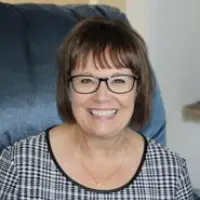About Sparrow’s Nest
Sparrow’s Nest is a 12-month faith-based residential inpatient program for women struggling with substance use issues in Beckley, West Virginia. The program equips residents with emotional, spiritual and practical life skills that empower them to thrive as contributing members of society. Recovery takes place in a safe and dorm-like setting that inspires complete behavioral change. This structured dormitory living environment offers a sense of community or family unit where residents learn personal responsibility through a set of daily routines.
Daily Life at Sparrow’s Nest
You’ll attend group and individual therapy on a weekly basis to develop coping skills, address underlying issues and build a strong foundation for recovery. Group interactions encourage problem-sharing and actionable interpersonal feedback. You’re encouraged to actively participate, communicate and engage your peers in a group setting. This fosters connection, helps you build support and enhances personal growth.
Family involvement is highly emphasized as a core ingredient to recovery success. They offer family therapy groups to educate your loved ones about the effects of substance use disorder on the family. The session helps mend relationships, rebuild trust and improve communication within the family. This strengthens your support network.
Work therapy is another integral component of the program. This is important to help you seamlessly reintegrate into the workforce upon graduation. Work therapy emphasizes essential character traits like responsibility, teamwork and discipline, which are important in a work environment. You’re taught how to lead and follow within a designated structure.
The program also includes recreational activities so that you can have fun in recovery. This may involve field trips or onsite leisure activities that reinforce your emotional and spiritual growth. You’re eligible for unsupervised family visits at home after six months. This serves as an avenue to evaluate your progress.
Four-Phase Substance Use Recovery
A key attribute of this program is that it is broken down into four phases. Each phase may last about three months, depending on personal progress. The first phase includes six weeks of orientation to get you acquainted with the staff and policies while creating a sense of security and stability. You’ll be assigned a big sister who’ll assist you with learning the rules and provide encouragement as necessary.
In the second phase, you’ll work on personal growth through faith and character development. You’ll apply what you learned in phase one by accepting more responsibilities in the house. Phase three focuses on leadership development, accountability and making amends through action and responsibility. The last phase is all about tailored aftercare planning, spiritual growth and applying Biblical principles to decision-making and leadership.
Facility Overview
Rehab Score
Gallery
Other Forms of Payment
Self-pay involves paying for treatment out of your own pocket. You can use savings or credit, get a personal loan, or receive help from family and friends to fund your treatment. If you don't have insurance or your insurance plan doesn't cover a specific program, self-pay can help ensure you still get the care you need.
Medicare is a federal program that provides health insurance for those 65 and older. It also serves people under 65 with chronic and disabling health challenges. To use Medicare for addiction treatment you need to find a program that accepts Medicare and is in network with your plan. Out of pocket costs and preauthorization requirements vary, so always check with your provider.
Medicaid is a state based program that helps lower-income individuals and families pay for healthcare. Medicaid covers addiction treatment so those enrolled can use their coverage to pay for rehab. When a program accepts Medicaid the client often pays very little or nothing out of their own pocket.
Addiction Treatments
Levels of Care
Residential treatment programs are those that offer housing and meals in addition to substance abuse treatment. Rehab facilities that offer residential treatment allow patients to focus solely on recovery, in an environment totally separate from their lives. Some rehab centers specialize in short-term residential treatment (a few days to a week or two), while others solely provide treatment on a long-term basis (several weeks to months). Some offer both, and tailor treatment to the patient's individual requirements.
Clients who are leaving detox or intensive inpatient care often transition into a rehab aftercare program. Outpatient treatment is among the most common rehab aftercare services, but clients often continue to receive support long after being discharged from formal treatment. Clients' long-term care plans are highly individualized and designed to evolve with the clients' changing needs. Case managers and care teams typically work with the client to design their unique care strategy.
The primary rule in a sober living home in West Virginia is that residents stay sober. In addition to this rule, residents are encouraged to find work or attend school and must contribute to household chores and abide by a curfew. These rules encourage responsible behavior and help residents maintain a structured, sober lifestyle. The halfway house setting helps people in recovery avoid isolation, practice responsibility, and develop supportive relationships.
Treatments
Substance rehabs focus on helping individuals recover from substance abuse, including alcohol and drug addiction (both illegal and prescription drugs). They often include the opportunity to engage in both individual as well as group therapy.
Programs
Adult rehab programs include therapies tailored to each client's specific needs, goals, and recovery progress. They are tailored to the specific challenges adult clients may face, including family and work pressures and commitments. From inpatient and residential treatment to various levels of outpatient services, there are many options available. Some facilities also help adults work through co-occurring conditions, like anxiety, that can accompany addiction.
Young adulthood can be an exciting, yet difficult, time of transition. Individuals in their late teens to mid-20s face unique stressors related to school, jobs, families, and social circles, which can lead to a rise in substance use. Rehab centers with dedicated young adult programs will include activities and amenities that cater to this age group, with an emphasis on specialized counseling, peer socialization, and ongoing aftercare.
Clinical Services
Group therapy is any therapeutic work that happens in a group (not one-on-one). There are a number of different group therapy modalities, including support groups, experiential therapy, psycho-education, and more. Group therapy involves treatment as well as processing interaction between group members.
In individual therapy, a patient meets one-on-one with a trained psychologist or counselor. Therapy is a pivotal part of effective substance abuse treatment, as it often covers root causes of addiction, including challenges faced by the patient in their social, family, and work/school life.
During family therapy, family members work with therapists to understand addiction as a disease and how it affects the family unit. Using this approach fosters empathy and reduces blame between family members. This creates a nurturing environment that helps support their loved one's sobriety.
Using recreational therapy, you engage in activities that support your mental and physical health. These activities may include yoga, team sports, and creative arts that help improve your mood and build a supportive community of your peers that promotes long term sobriety.
Staff

Leon Brush
Founder

Donita Brush
Founder
Contact Information
PO Box 1122
Beckley, WV 25802
